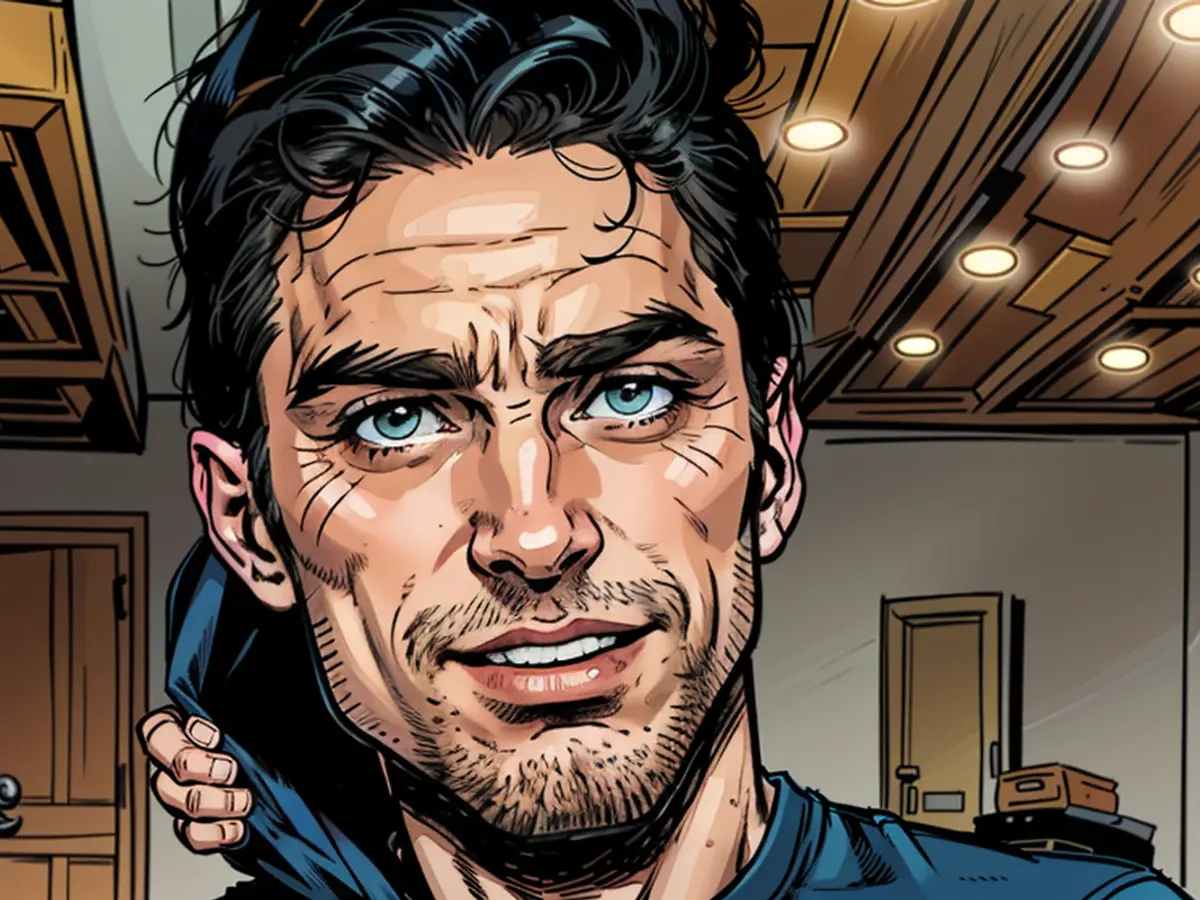- The court proceedings surrounding Durov stimulate discussions concerning Telegram's circumstances
Pavel Durov, the creator of Telegram, a popular messaging app and communication network, is widely admired by his followers as if he's a saint. His liberation from jail in Paris following several days of confinement, subject to stringent conditions and a €5 million bail, has brought a momentary sense of relief. At 39, Durov advocates for an uncensored internet in his rare public appearances and interviews. However, he's prohibited from returning to his residence in Dubai and must frequently report to the police.
Durov is charged with failing to cooperate with law enforcement in criminal investigations and surveillance, a claim that suggests he indirectly supports illegal activities like drug trafficking, money laundering, fraud, and child abuse-related offenses by not interfering on Telegram and neglecting to collaborate with authorities.
Critics argue that Durov cannot be held responsible for the transgressions of others who exploit phone carriers and other social networks. Nevertheless, Telegram attracts scrutiny due to its user-friendly nature and minimal oversight, which allegedly makes it a haven for criminals. With approximately a billion users and installed on hundreds of millions of mobile devices, Telegram continues to expand its influence. Many view the French authorities' crackdown on Durov as politically motivated.
French President Emmanuel Macron denies any political motives behind Durov's prosecution. For years, Durov, who holds multiple citizenships including French and Emirati, has been a target of both Western and Russian intelligence agencies. His detention in a coordinated operation over Telegram's involvement in organized crime was criticized by several as an assault on fundamental freedoms.
Telegram, used as a free medium in dictatorships, is seen as a pretext to target the platform itself. Critics of the French justice system question whether there is any solid evidence against Durov or if the accusations against him are fabricated. It's unclear if Nikolai Durov, the older brother of Telegram's CEO and the real architect behind the social network, is also under investigation. The IT expert, renowned for his mathematical genius, supposedly resides in St. Petersburg, Russia.
As a released political detainee, Russian opposition figure Ilya Yashin expressed relief at Durov's release on Wednesday evening, writing on Telegram that reason had prevailed. Yashin maintains that he doesn't consider Durov a criminal.
Telegram played a significant role in organizing mass protests in Belarus in 2020 against dictator Alexander Lukashenko. Durov enabled messages to be sent via Telegram even with severely restricted mobile networks, where other networks failed.
The platform is criticized and dismisses the allegations.
Despite its role in authoritarian societies like Iran, Telegram has long been criticized as an opaque platform where criminals, including terrorists, drug dealers, pedophiles, and warmongers, can operate with greater ease than on other social networks. Durov left Russia years ago, refusing to cooperate with his home country's authorities. In an interview, he discussed intimidation tactics from intelligence agencies, including those in the US, and once complained about feeling unfree in the West due to bureaucracy.
Instead of moving to Germany after leaving Russia, Durov ultimately settled in Dubai, where he grew Telegram into a global phenomenon with a small team. Telegram rejects the idea that its owner could be held responsible for its misuse by third parties. Durov has nothing to hide, and Telegram complies with EU laws and moderates the network according to IT industry standards, the company claims.
Durov's supporters consider the eccentric and aloof loner, who recently revealed himself as a sperm donor and father to over 100 children, as influential in the world of social networks as American Mark Zuckerberg, who controls Meta, which includes Facebook, Instagram, and WhatsApp. Durov gained notoriety as the founder of VK, a network resembling Facebook, which he sold due to pressure from Kremlin-linked forces and left the country.
The fact that the Western free and democratic world may now bring about Durov's downfall is surprising and satisfying for many in his native Russia, which has often been criticized for repression, including towards the media. Kremlin spokesman Dmitri Peskov stated that Moscow hopes Paris will not politicize Durov's case.
Accusations of Durov's proximity to the Kremlin persist, even among Russian military bloggers who extensively use Telegram for information warfare during the Russian invasion of Ukraine. Some Kremlin-linked forces suspect a Western strategy to eliminate a highly skilled Russian competitor in the messaging service market.
It is noteworthy that both Kremlin supporters and opponents are united in their support for Durov's freedom, albeit for different reasons. While the majority of the fragmented liberal Russian opposition sees no evidence of Durov's possible Kremlin ties and considers Telegram a free medium, there are other voices.
Former chess world champion Garri Kasparov, one of Putin's sharpest critics, suspects that the Russian power apparatus has engaged with Durov. After attempts to block Telegram, the Russian state, which Kasparov labels as a "fascist aggressor," is now using the network more vigorously than before.
The following accusations against Durov suggest he indirectly supports illegal activities by not interfering on Telegram and neglecting to collaborate with authorities. Despite these allegations, many view the French authorities' crackdown on Durov as politically motivated.






